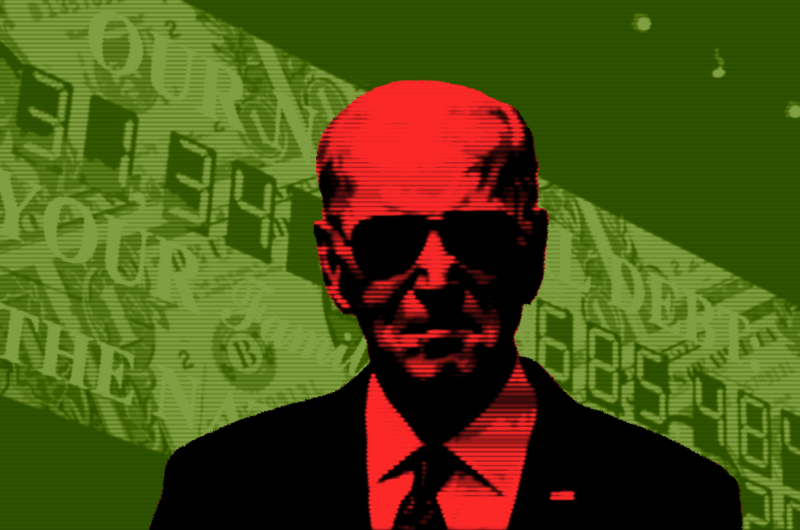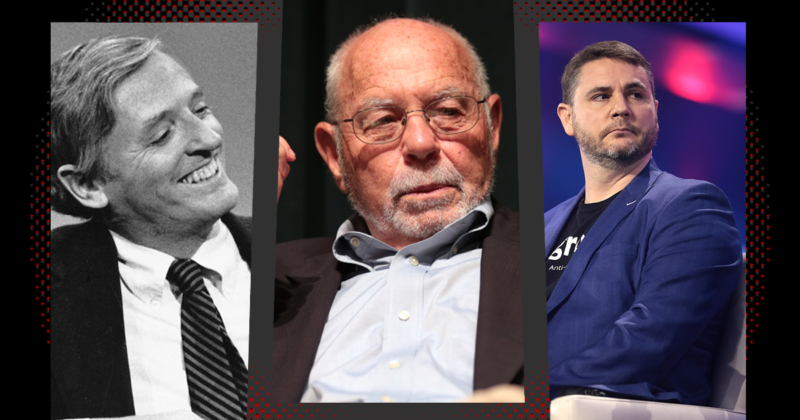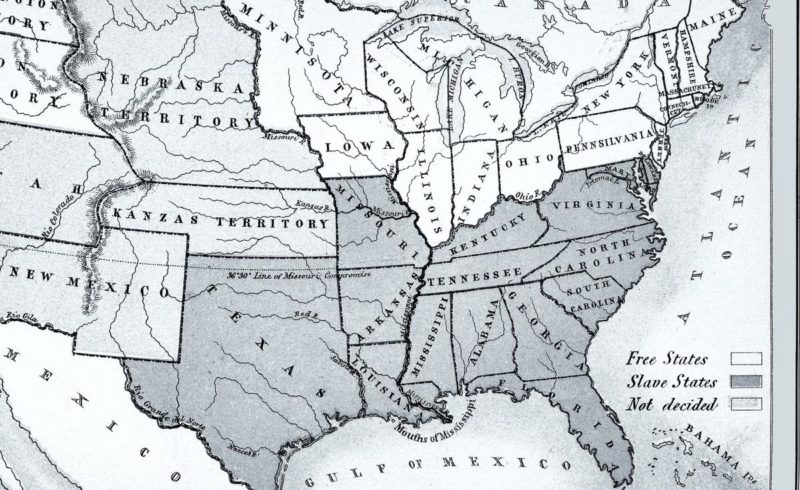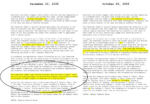Category Archive: 6b.) Mises.org
The Truth About Bidenomics: More Debt, More Inflation
Estimates of United States growth have improved but remain massively below the Federal Reserve projections.
After the largest monetary and fiscal stimulus in recent years, growth remains well below trend, and debt is significantly higher. It is interesting to hear Janet Yellen say that “trickle-down economics did not work” when this is the failed trickle-down: massive government deficit spending leads to negative real wage growth and weaker GDP....
Read More »
Read More »
Wall Street to the Fed: Inflation Is Over. Give Us More Easy Money!
The problem here not that the central bank is "setting" the "wrong" interest rate. The problem is the Fed has long been relentlessly forcing down interest rates to satisfy various politically determined "needs."
Original Article: "Wall Street to the Fed: Inflation Is Over. Give Us More Easy Money!"
Read More »
Read More »
Call Rent Control What It Really Is: Theft
Rent control is all the rage with progressives, with several states and localities trying to impose it. However, when people have their property effectively—and legally—stolen, there are long-term consequences.
Original Article: "Call Rent Control What It Really Is: Theft"
Read More »
Read More »
How “Squatter Democracy” Created America’s First Welfare Program
After 1820, growing numbers of propertyless squatters were voters, and this was an opportunity for politicians to offer cheap land in exchange for loyalty to the Democratic Party.
Original Article: "How "Squatter Democracy" Created America's First Welfare Program"
Read More »
Read More »
Two More Elephants in Your Electric Vehicle
On this week's episode, Mark summarizes the many problems with EVs, and focuses on two consequences funded by taxpayer subsidy. Large, overpriced, long range vehicles have been subsidized at the expense of more efficient technological applications. These EVs are significantly heavier compared to their fossil fuel counterparts (which have engines and gas tanks). These heavier vehicles create greater crash risks for passengers and pedestrians....
Read More »
Read More »
To Smoke or Not to Smoke: The Cigarette Economy in Postwar Germany, 1945–48
During the three years after World War II, Germans—facing a ruined economy and wildly depreciating currency—turned to cigarettes as a medium of exchange on a massive scale. Allied occupation authorities strictly forbade this black-market currency exchange, but it literally saved the lives of many German civilians—and inadvertently made many American GIs rich.
The cigarette had already made its appearance during the war as a currency in both the...
Read More »
Read More »
Paleoconservatives Need Better Critics
Paul Gottfried is no stranger to criticism from “conservative” gatekeepers. Like his friend and colleague Murray Rothbard, Gottfried has been a target of Buckleyite conservativism ever since he was ousted from the National Review in the 1980s. Also, like Rothbard, Gottfried’s ideas have continued to inspire new generations of Americans sincerely interested in grappling with societal issues as neoconservatism has waned everywhere outside of...
Read More »
Read More »
MMT’s Warren Mosler Argues Fed Rate Hikes Cause Growth and Inflation
Bob walks through a recent interview of MMT champion Warren Mosler, in which he claims that Fed rate hikes lead to larger government interest expenses and hence support economic growth and inflation. Bob presents both theoretical and empirical evidence against Mosler's claims.
MMT's Warren Mosler Argues Fed Rate Hikes Cause Growth and Inflation
Video of MMT's Warren Mosler Argues Fed Rate Hikes Cause Growth...
Read More »
Read More »
The Backstops for Banks Are Full of Holes
First Republic, Signature Bank, and Silicon Valley Bank have all failed, and that’s not the only thing they have in common. Western Alliance Bank’s Ken Vecchione was jealous of these three large regional banks. The chief executive admitted to the New York Times, “We were, I have to admit, a bit envious of them.”
Obviously Vecchione was and likely still is oblivious to problems at his bank and others. He doesn’t understand the fragility of...
Read More »
Read More »
The GDPR Paradox: Empowering Government in the Name of Data Protection
The European Union’s General Data Protection Regulation supposedly protects people from government data abuse. In reality, it empowers governments.
Original Article: "The GDPR Paradox: Empowering Government in the Name of Data Protection"
Read More »
Read More »
When Slave Owners Chose Federal Power over Local Sovereignty
A recurring theme in American politics is the cynical use of federal power by those who simultaneously pretend to favor "states' rights" or "local control." We see this today when Republicans one minute say they favor local control with gun laws or Obamacare—and then demand the federal government impose nationwide drug prohibitions. We see it among Democrats who want local control over "sanctuary cities" for illegal...
Read More »
Read More »
Cracked-Up Slobodian
Crack-Up Capitalism: Market Radicals and the Dream of a World without Democracyby Quinn SlobodianMetropolitan Books, 2023; 336 pp.
Quinn Slobodian, a professor of the history of ideas at Wellesley College, has a good deal to say about Murray Rothbard, and I have attempted to respond to that in a review that is to be published in the next issue of The Austrian. Slobodian also includes some comments on the Mises Institute, Lew Rockwell, and...
Read More »
Read More »
Socialists Should Support Government Default: Their Forebears Certainly Did
Socialists like Bernie Sanders and the editors of Jacobin have decried the possible US government debt default. Marx and Lenin would have vociferously disagreed.
Original Article: "Socialists Should Support Government Default: Their Forebears Certainly Did"
Read More »
Read More »
Cultural Change Is Necessary for Capital Development
Preserving culture is so crucial to a group’s identity that it has become sacred. For many the contents of culture don’t matter as long as they are preserved. But such a nihilistic approach to culture has led to failure and will continue to do so. Culture is a social technology that allows societies to function within a specific institutional setting. So, a constellation of traits could be useful for people living in a premodern setting but...
Read More »
Read More »
America: A Nation of Debt
On this episode of Good Money with Tho Bishop, Ryan McMaken joins the show to talk about America's debt crisis. Tho and Ryan discuss both the damage done to the economy by runaway government spending, as well as how Federal Reserve policy has incentivized consumption and punished savings, which has resulted in record-high credit card debt.
Good Money listeners can order a special $5 book bundle that includes How To Think About the Economy...
Read More »
Read More »
The Problem with Nationalism
Ryan, Tho, and Kerry Baldwin take a look at why some politicians say they're "nationalists." Is nationalism a good thing or is it just another way to justify more government meddling in our lives?
New Radio Rothbard mugs are now available at the Mises Store. Get yours at Mises.org/RothMug
PROMO CODE: RothPod for 20% off
Read More »
Read More »
My Forty-Year War on Reefer Madness
Forty years ago last week, the Los Angeles Herald Examiner published my first attack on the federal drug war. The previous year, the Reagan administration had unleashed its “Just Say No” program, vilifying anyone who smoked a joint, sniffed the wrong powder, or used nonapproved hallucinogens. I was mortified to see Ronald Reagan—who was elected on a promise to get “government off your backs”—double-cross his supporters with what morphed into the...
Read More »
Read More »
Huerta de Soto Reigns in Spain
Jesús Huerta de Soto, who is professor of economics at the Rey Juan Carlos University of Madrid, is the leading representative of the Austrian school of economics in Spain. He is a renowned teacher, and two of his many doctoral students, David Howden and Philipp Bagus, both now themselves professors of economics, have edited a festschrift in his honor. The contributors include students, colleagues, friends, teachers, two of his daughters, and his...
Read More »
Read More »
Licensing Laws Deepen South Africa’s Electricity Crisis
South Africa is suffering from rolling blackouts and other power outages. These could be avoided if the government would permit competition in electricity markets.
Original Article: "Licensing Laws Deepen South Africa's Electricity Crisis"
Read More »
Read More »
The Major Cause of Mass Poverty in Sudan
Mere days prior to its receiving renewed attention because of an ongoing civil war, Sudan and many other African countries were (and still are) being promoted by news organizations as citadels of suffering. Viewers are subjected to heart-wrenching images: The gaunt, skeletal bodies of starved children crying out in hunger. Families left with only emaciated cows, selling sticks to produce some kind of livelihood. After observing these agonizing...
Read More »
Read More »



























